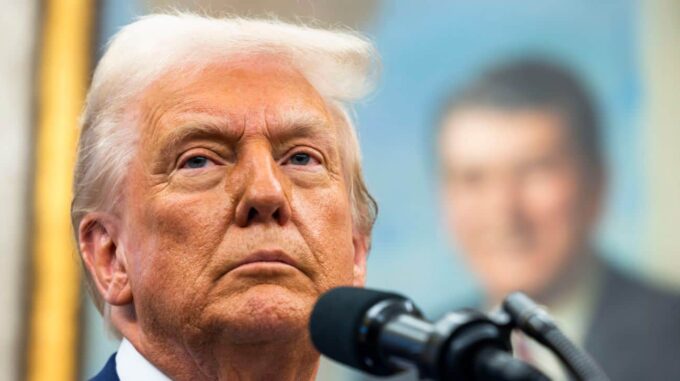More than two weeks have passed since American and European politicians began actively discussing the situation surrounding the military actions in Ukraine

However, despite numerous diplomatic statements and declared intentions, concerns and uncertainty about the United States' next steps in strengthening Kyiv's position and seeking ways to achieve peace are growing in Europe. External analysts and diplomatic sources note that although Donald Trump recently threatened to wield pressure mechanisms against Russia, he has yet to follow through on these promises, which is increasingly disappointing European partners. According to information cited by Bloomberg, referencing diplomatic sources and anonymous informed individuals, European countries are increasingly surprised and even concerned about the ongoing changes in Washington's position regarding the war in Ukraine. They point out that the Trump administration exhibits uncertainty: some colleagues still hope that the US will fulfill earlier commitments to impose secondary sanctions and restrictions on the banking sector and those supporting Russia's aggression in the near future. However, according to sources, recently the US government has been more focused on taking a firm and uncompromising stance against Moscow, accusing Vladimir Putin of obstructing peaceful conflict resolution. In particular, the article emphasizes that against the backdrop of recent diplomatic meetings in Istanbul involving representatives of the US, the EU, and Ukraine, American officials have openly expressed readiness to introduce new sanctions against Russia. This response came after Moscow announced intentions to delegate low-level representatives to negotiations. Sources indicate that the US side has made it clear that any further decisions regarding sanctions psychology and possible compromises must be personally approved by Donald Trump. At the same time, diplomatic and expert circles again point out that it is the personal decisions of US top leadership that determine the subsequent policy. Let us recall that on May 16 of this year, Istanbul hosted the first direct negotiations between Russia and Ukraine in over three years. According to media reports, at this meeting, Russia attempted to present a list of almost unacceptable conditions for Kyiv, including demands that Ukraine not involve American representatives in the negotiation process and several pre-determined unacceptable demands. However, following the meeting, Ukrainian officials, including the Ministry of Defense, stated that issues discussed included a ceasefire, humanitarian aspects, and the possibility of a meeting at the highest level. They also emphasized that negotiations remain open, and Ukraine continues to insist on achieving long-term peace in the region. Currently, diplomatic circles are increasingly disappointed with the prolonged uncertainty hindering the search for effective quick solutions to restore security and stability in Ukraine. Experts assess that this situation reflects deep internal disagreements within US political leadership, which could eventually negatively impact the unity and effectiveness of international support for Ukrainian resistance. European allies, who aim to end the war and restore peace, are increasingly considering the possibility that Washington, remaining indecisive, might allow the conflict to continue longer than expected. In any case, Europeans remain in a state of strategic uncertainty, awaiting a clear signal from Washington regarding further steps in this critical situation.

